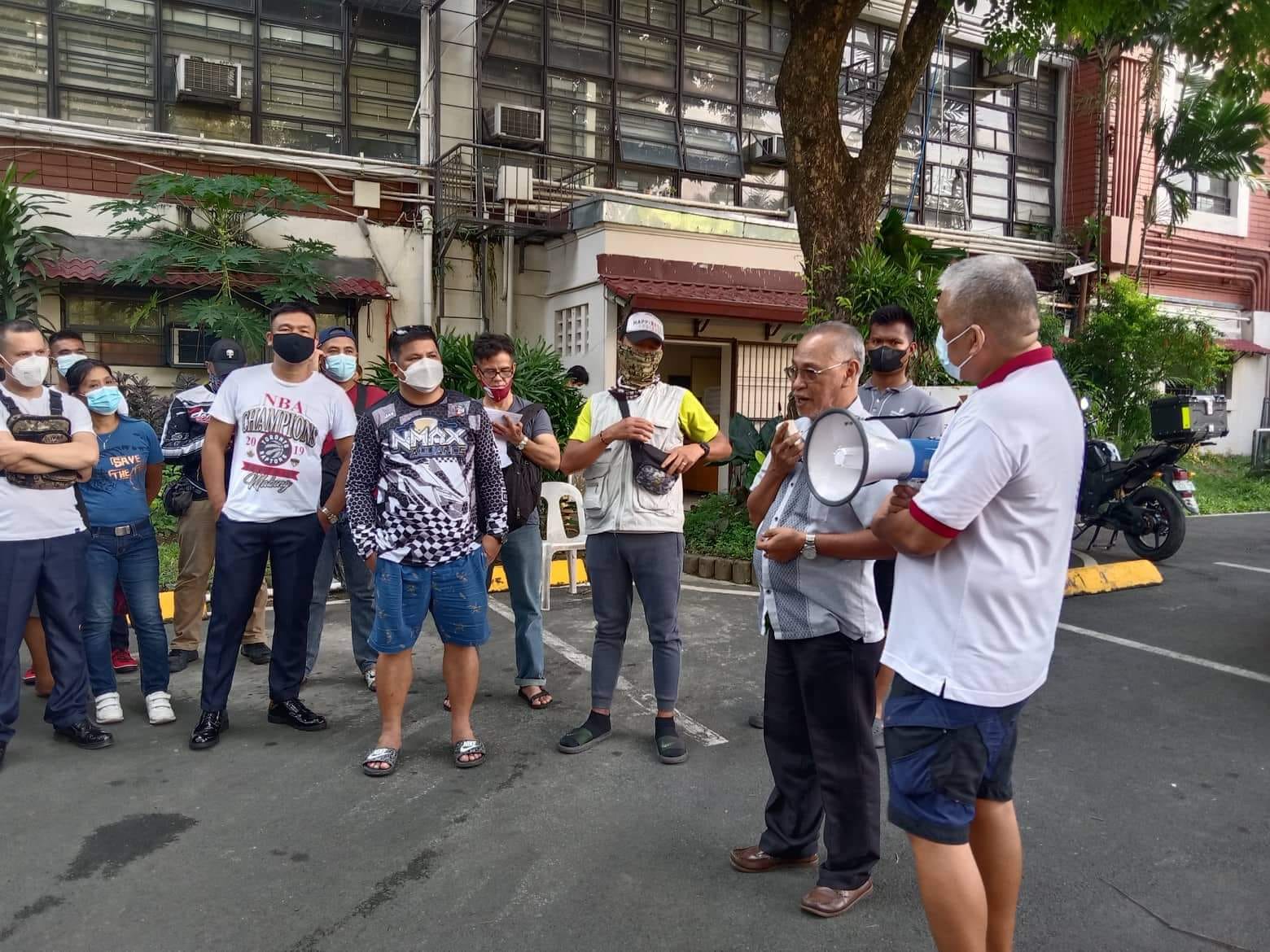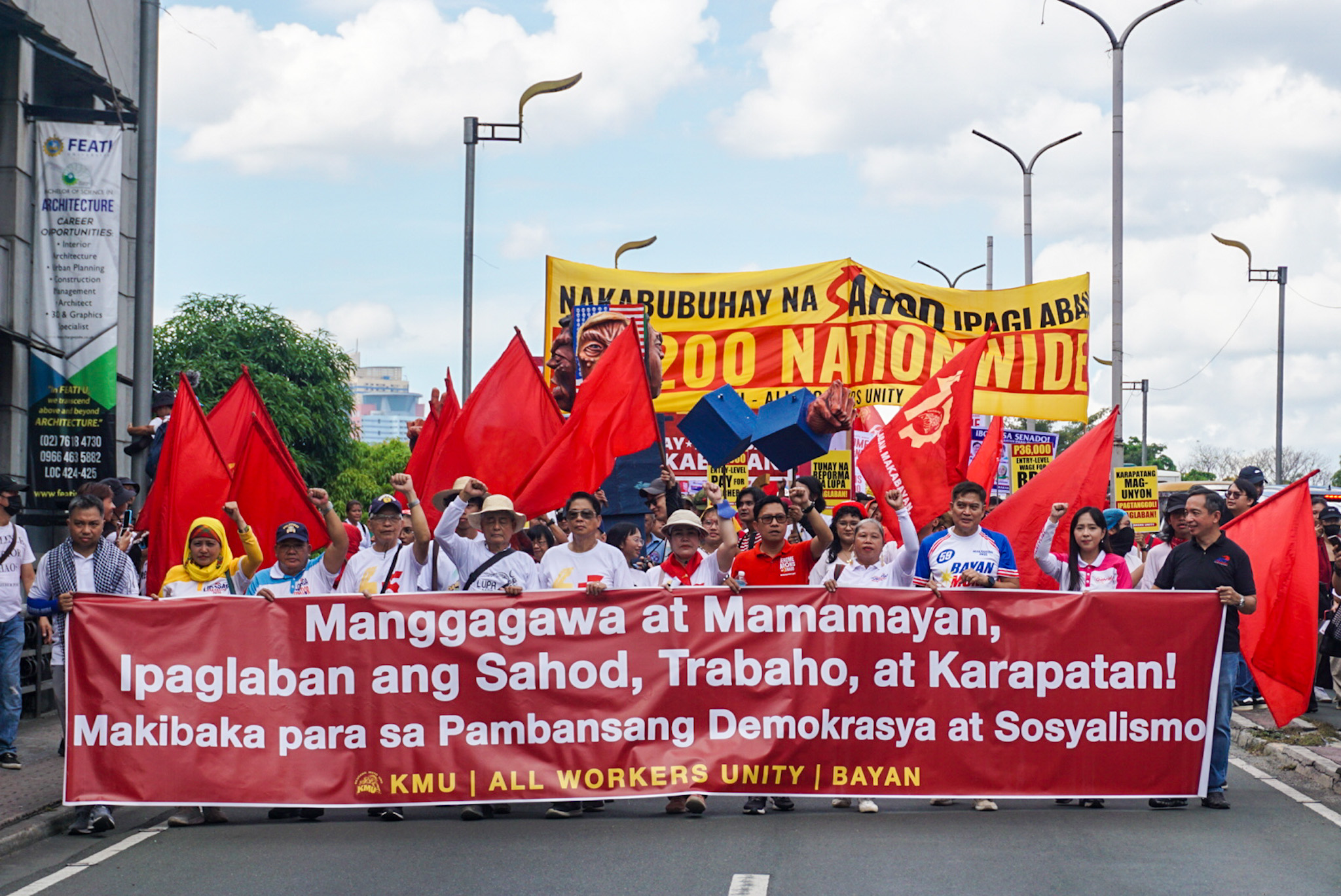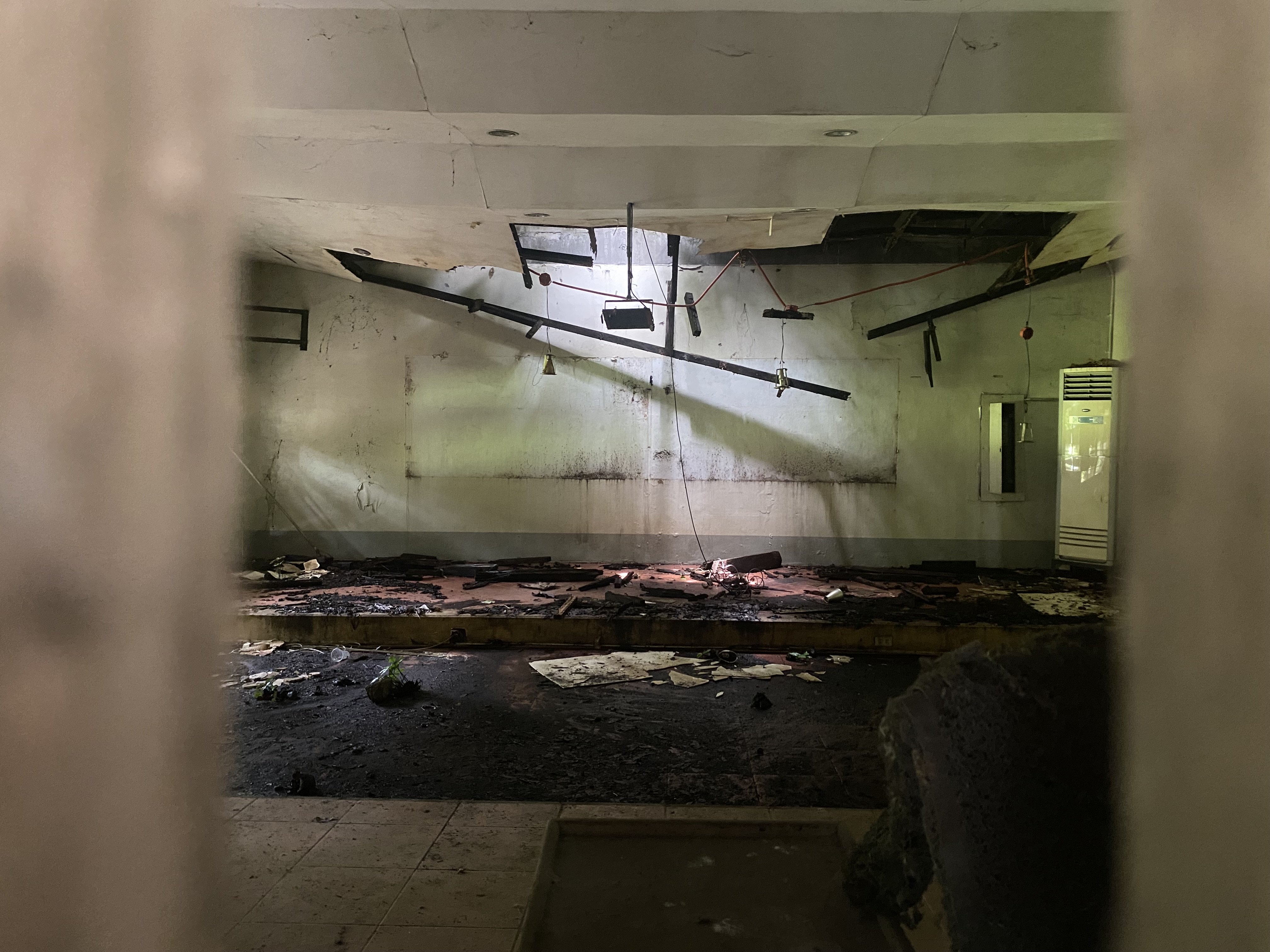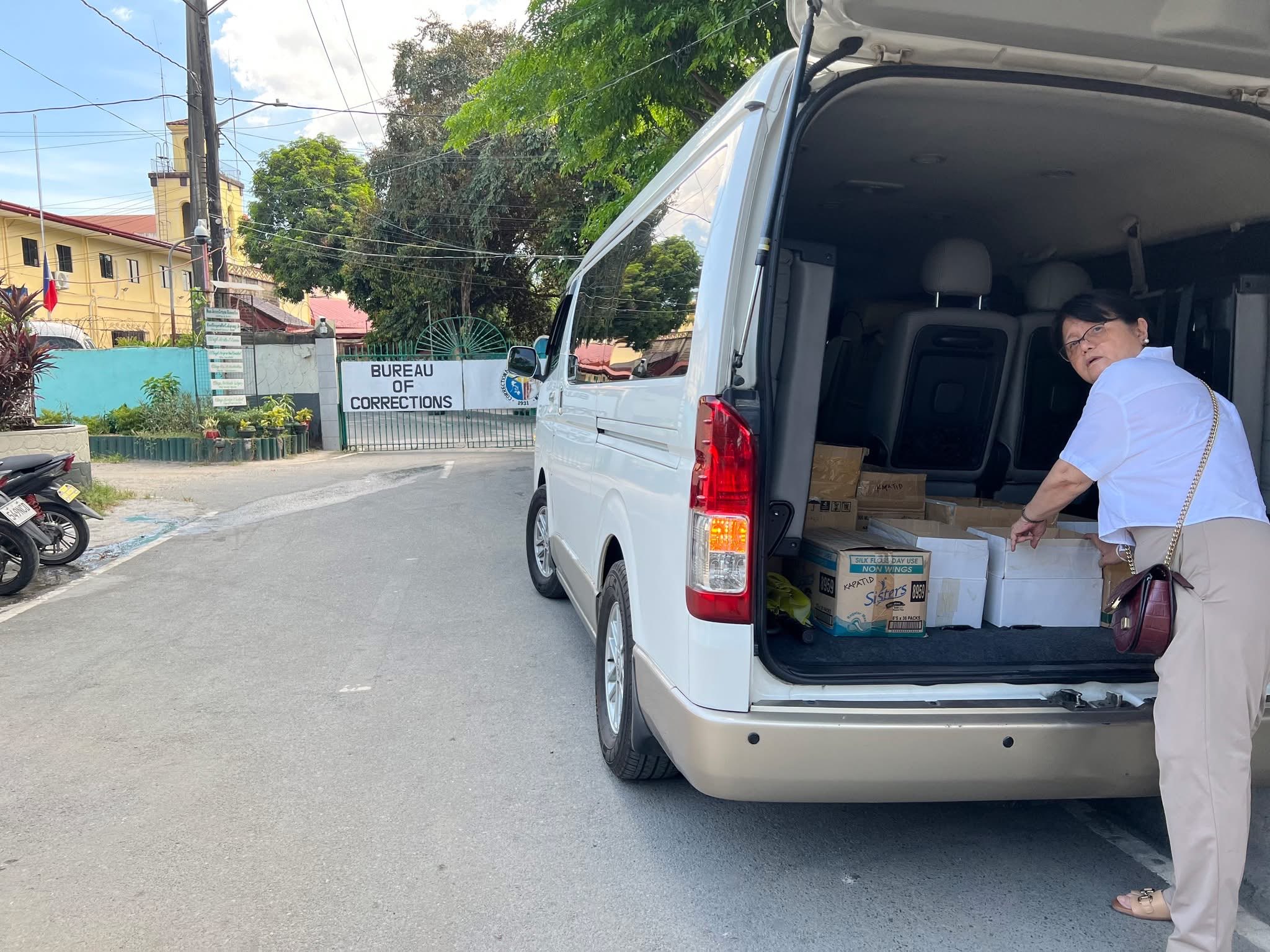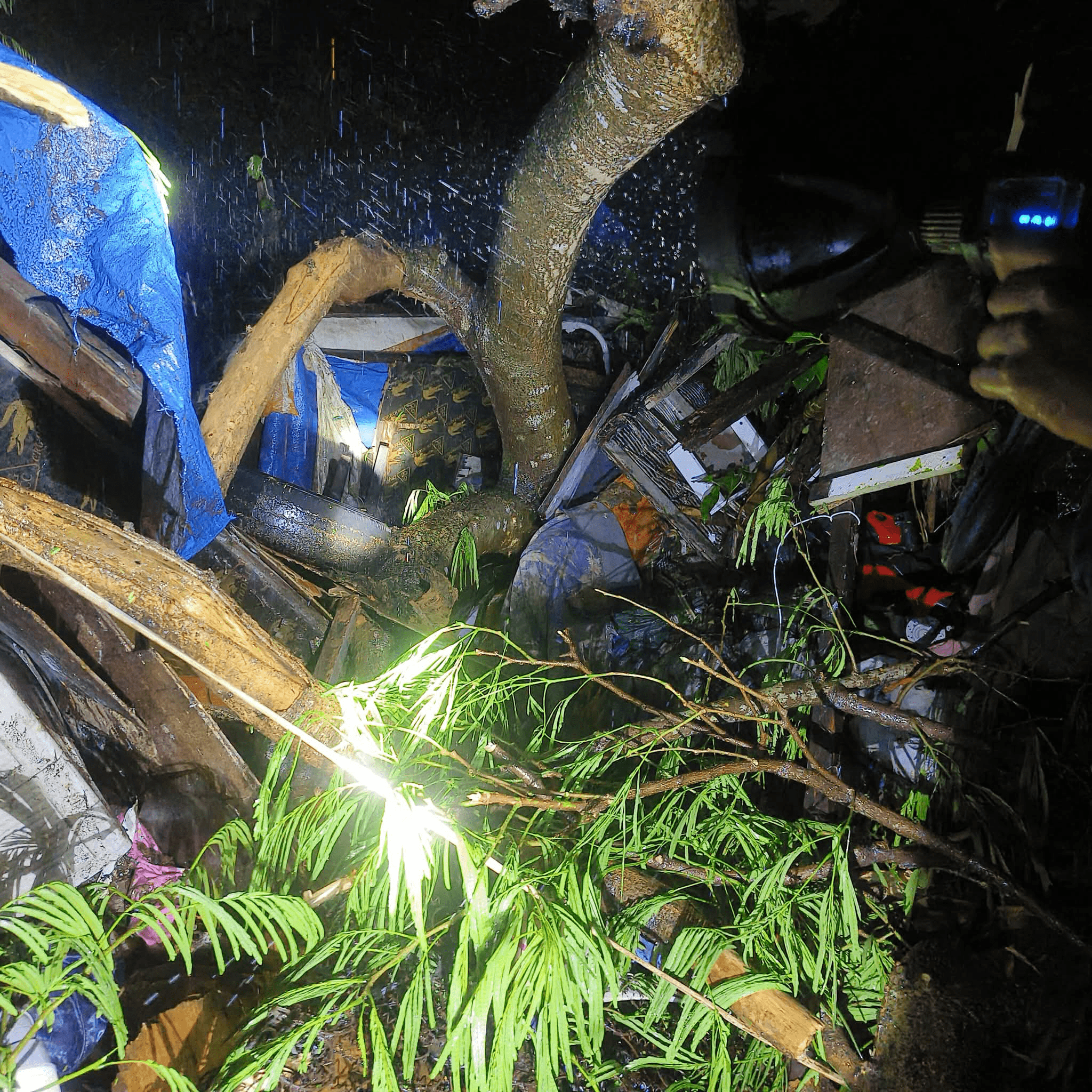Workers’ alliance in UP Diliman (UPD) are demanding the university administration to come up with a workable and long-term plan for the employment of its security guards after hundreds were terminated when a new security agency took over last June 1—the second mass layoff in just a little over a year.
No less than 140 security guards were laid off on the morning of June 1, the same day when the contract of the Grand Meritus Security Agency expired. Femjeg Security Agency took over the security services after it bagged the contract worth P117 million from UP.
This was the exact situation last April 2021 when Northcom Security Agency’s contract expired and the new agency, Grand Meritus, took over. Over 60 security guards were initially terminated during that incident.
“Dahil nakipagkasunduan ang UP sa mga agency, mawawalan sila ng trabaho. Nakikita nating paulit-ulit ito ngayon kada magpapalit ng agency ang UP,” said Glenn Cabradilla of the Alliance of Contractual Employees in UP. “Hindi kasalanan ng guards na maaalis sila dahil ginagampanan nila ang trabaho nila nang maayos.”
In a dialogue on Monday, a representative from Femjeg said they cannot commit to absorbing all of the affected guards because they have already filled the 282 security guard posts—a departure from past practice that required the new agency to rehire existing guards. Besides, the agency pointed out that they were not required to absorb the existing guards. The technical specifications of the security service provider revealed that the winning bidder, Femjeg, was only required to “consider the hiring” of existing job order or contract-of-service UP employees.
The Femjeg representative claimed they opened the hiring of new guards for UP in March, but the retrenched security guards said they were only informed of Femjeg’s hiring last May 20—less than two weeks before the new agency was set to take over.
For now, Femjeg proposed band-aid solutions to the retrenched guards. The agency offered to absorb some of the guards as on-the-job trainees, with the same salary but without benefits. Femjeg also suggested the idea of hiring the guards should a vacancy open up or when they bag another contract outside UP.
“Iyang ganyang klaseng pagbibitaw ng salita ay hindi natin pwedeng panghawakan … Halos taon-taon na ito nangyayari dahil taon-taon ay nagkakaroon ng pagpapalit ng agency ang north at south sector,” Cabradilla said. “Kaya sa pangkabuuan, kailangang magpatupad na ang UP ng mga pagbabago sa pagpili nila ng agency.”
Among the proposals the union floated could be the formation of an independent monitoring team that would serve as a check to the security contractor if the terms of the agreement are being met. In that way, perennial issues like delayed salary and poor working conditions could be noticed and resolved quickly. “Walang ganyan (monitoring team) sa security agency. So ngayon, hindi malinaw kung kanino yung burden sa pagtitiyak na nagagampanan ng security agency ang nakasaad sa kontrata,” Cabradilla said.
Moreover, UP should also amend the contract for future security providers by indicating that they are required to absorb or rehire the guards of the preceding agency. This was the case in previous security contracts where UP required a new agency to absorb all if not most of the old security agency, Cabradilla noted.
In a previous interview with the Collegian, UP Chief Security Officer John Baroña insisted that UP is not involved in the hiring of guards and that the agency has the prerogative on who to employ. Baroña’s office has not yet responded to our request for comment as of writing.
But ultimately, ending the practice of contracting security services would resolve the problem altogether, Cabradilla said, adding that UP should explore the option of directly hiring security guards to avoid problems that would arise every time a sector’s security service provider would change.
Annually, UP shells out over P100 million to seek the services of a security agency. The contract includes not only security guards’ compensation but also the rent and purchase of equipment like firearms, electric generators, and safety kits. That amount does not include the compensation of UP’s in-house security forces, the UPD Police and the Special Services Brigade.
“Hindi mangyayari ang lahat ng ito kung regular ang manggagawa. Yung mga kontraktwal na manggagawa, hindi yan bound ng rights. Bound lang yan ng kontrata na, kagaya ng sa UP Diliman, nagpapalit kada taon,” Cabradilla said. “The moment na natalo sa bidding ang agency, nasaan na yung security of tenure nila? Wala.” ●
With reports from Polynne Dira and Christian Chua.
